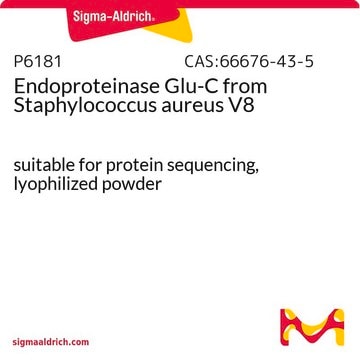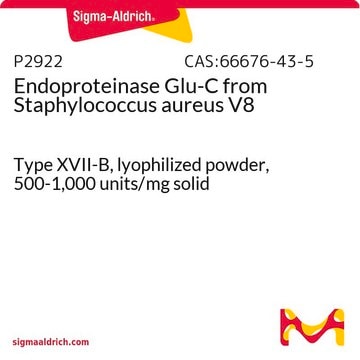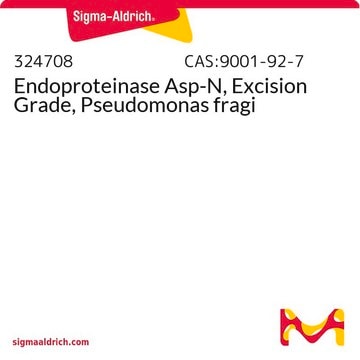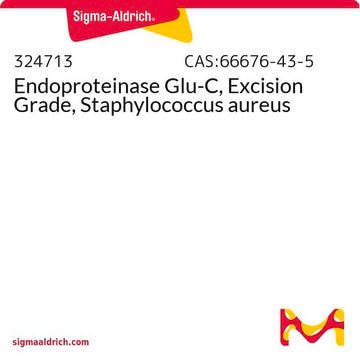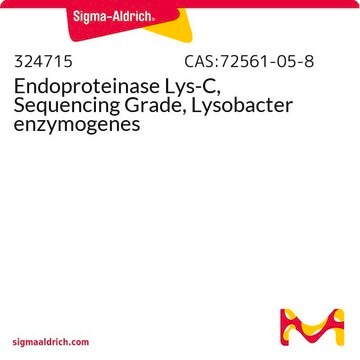ENDOGLUS-RO
Roche
Endoproteinase Glu-C Sequencing Grade
from Staphylococcus aureus V8
Synonym(s):
protease
About This Item
Recommended Products
biological source
Staphylococcus aureus (V8)
form
lyophilized (salt-free)
lyophilized
specific activity
≥15 units/mg protein
mol wt
Mr 27 kDa
packaging
pkg of 3 × 50 μg (11047817001)
pkg of 50 μg (11420399001)
manufacturer/tradename
Roche
optimum pH
4.0-7.8
storage temp.
2-8°C
Related Categories
General description
Specificity
Heat inactivation: Most proteases sequencing grade are stopped by boiling for 5 minutes.
Application
Features and Benefits
Preparation Note
With a minimum amount of 1 to 5 μg insulin Box, sufficient levels can be detected using the Column Aquapore RUP 300, 4.6 x 100 nm, 7 μm.
Working solution: Solvent is recommended in double-distilled water.
Solvents other than water have not been tested; Roche recommends using 50 mM Hepes, pH 7.8.
Storage conditions (working solution): +2°C to +8°C for 1-2 days.
Stability: At +2 to +8°C within specification range for 12 months; stored dry.
Reconstitution
Other Notes
signalword
Danger
Hazard Classifications
Eye Irrit. 2 - Resp. Sens. 1 - Skin Irrit. 2 - STOT SE 3
target_organs
Respiratory system
Storage Class
11 - Combustible Solids
wgk_germany
WGK 1
flash_point_f
does not flash
flash_point_c
does not flash
Certificates of Analysis (COA)
Search for Certificates of Analysis (COA) by entering the products Lot/Batch Number. Lot and Batch Numbers can be found on a product’s label following the words ‘Lot’ or ‘Batch’.
Already Own This Product?
Find documentation for the products that you have recently purchased in the Document Library.
Customers Also Viewed
Our team of scientists has experience in all areas of research including Life Science, Material Science, Chemical Synthesis, Chromatography, Analytical and many others.
Contact Technical Service

